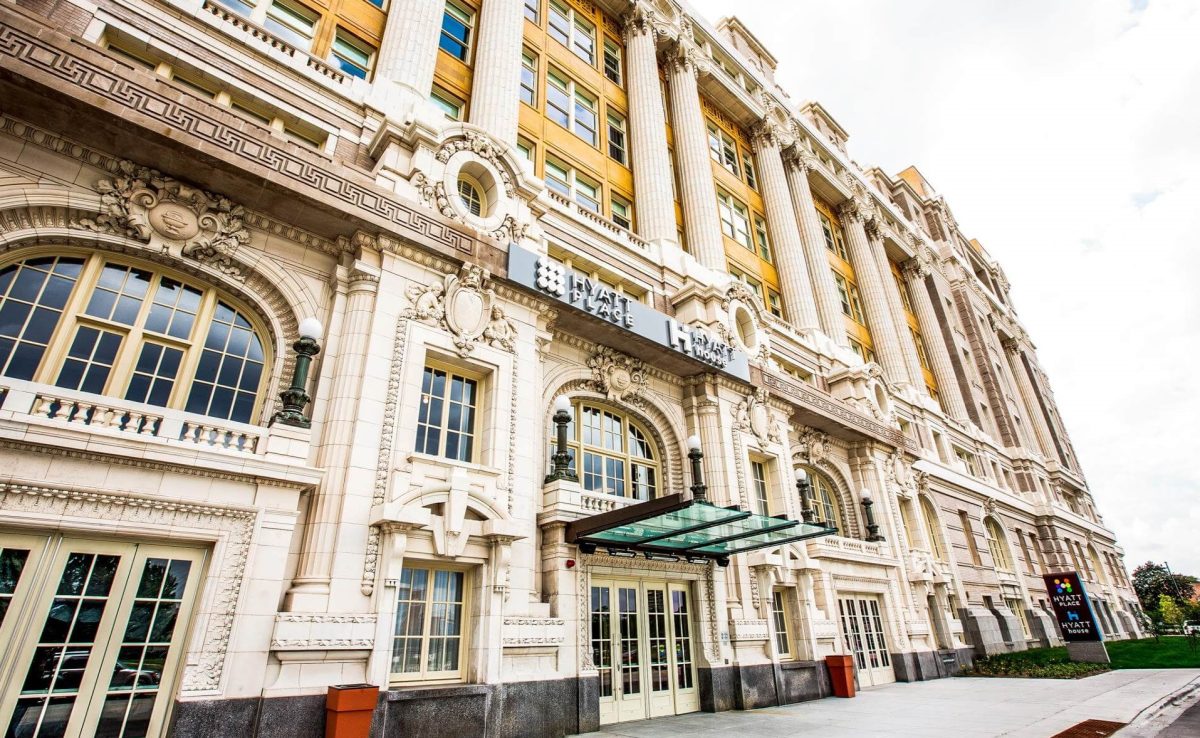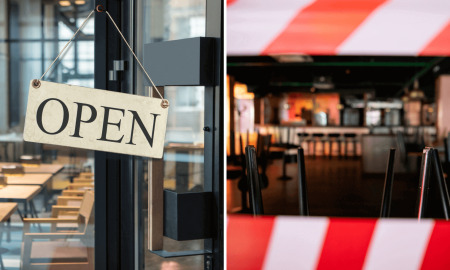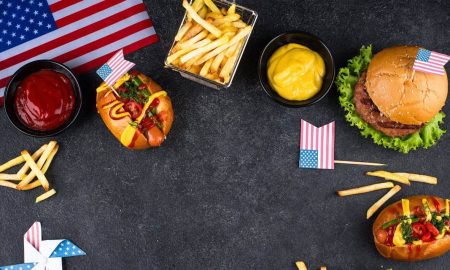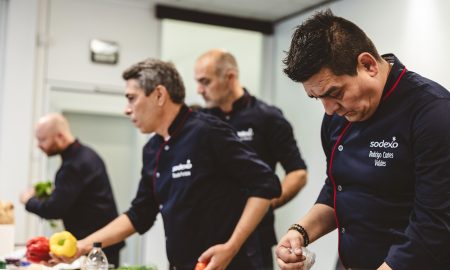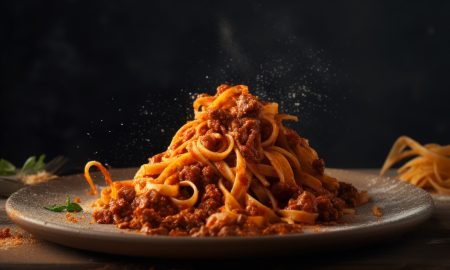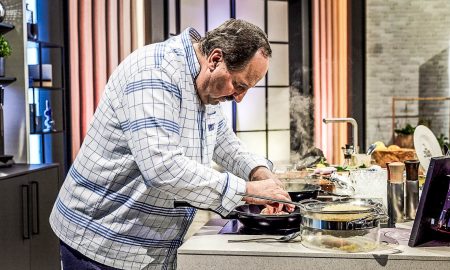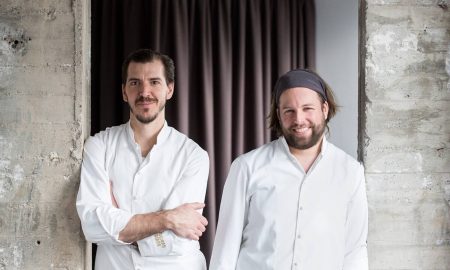Of course, when a concept catches on, it can be a little more difficult to stand out from the crowd and make sure you’re offering people something more than just a place to eat.
But Dr Murphy’s Food Hall in Chicago, Illinois – which opened on 3 August – is doing just that. With a vision to create somewhere that truly brings people together and helps builds community, its focus is not on getting in big brands, but on championing local small and independent businesses – many of which were founded by female and ethnic-minority owners.
Situated in the medical district of Cook County, Dr Murphy’s Food Hall caters to a wide array of customers, from local residents to the doctors, nurses and healthcare staff who work in the nearby medical centers and the families of hospital patients.
This location was an obvious choice for Hospitality HQ’s newest location, according to co-founder Akhtar Nawab, who says the varied demographic of the area makes it the perfect spot for such a diverse concept.
“We felt as though the very busy medical district was in need of some positive news and at the same time some nourishing food,” he says. “It’s obviously been a challenging time for many, but the area remains busy regardless of what we’re dealing with.”
In fact, while the impact of Covid-19 did delay the launch of the project by a couple of weeks, Nawab says they were determined to push forward and wanted to get the food hall up and running as soon as possible.
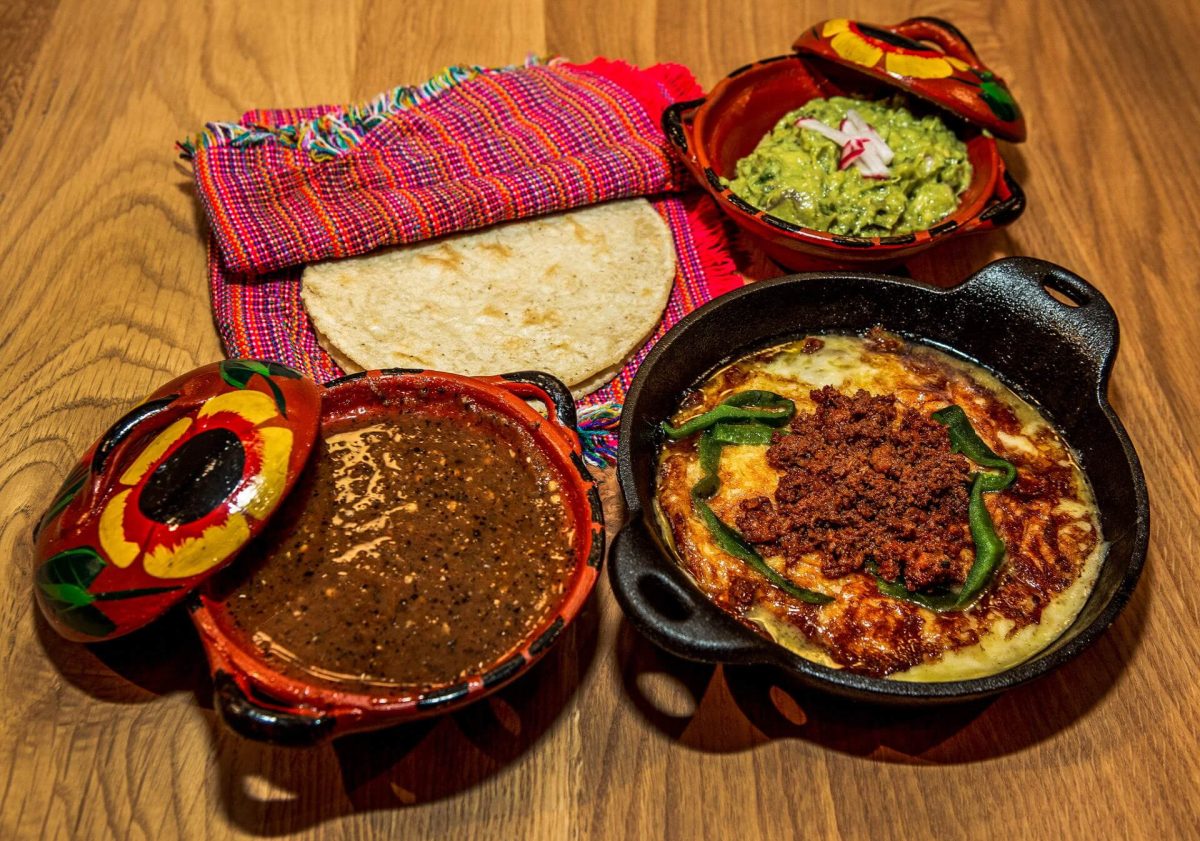
Image: Dr. Murphy’s Food Hall
Backing local business
As well as making sure Dr Murphy’s Food Hall provides a delicious and exciting menu for customers, it also prioritizes giving opportunities to small businesses who may otherwise have struggled to set up on their own.
“We’ve opened this food hall with the hopes and anticipation of feeding the community with nourishing, artisanal, non-franchised based individuals and companies,” says Nawab.
The food hall features 12 concepts, from Mexican to Vietnamese, and each of its vendors are first and second time operators that were looking for a chance to either start or grow business their business.
“As you can imagine, in major cities in the US, it’s extremely expensive open a restaurant and the rate of return on your investment is often very slow,” explains Nawab. “And in these particular times, I don’t think it’s even really possible for people starting out to venture off and get a loan approved, nor have the willingness to put your life savings at risk like that – it’s a really difficult position to be in.”
The nature of a food hall means the investment required from the business is that much smaller, and Hospitality HQ gives eligible vendors the opportunity to enter at a low threshold of $15,000-25,000. “We’re not really asking for a financial commitment as much as a time commitment,” Nawab explains.
And he’s has taken this one step further during the pandemic. After meeting with various people in the planning stages of the food hall, Nawab realised that the current economic situation meant even fewer people were able to access funding.
“I really started seeing a pattern of economically injured people through the crisis. So we created a vendor grant program, through the enquiry section of our website, and we vetted those submissions and actually awarded a couple of people who had compelling cases the opportunity to open for essentially no cost.”
One business that has benefitted from this approach is The Classic Cobbler, run by Bran’Arla Johnson. “Bran’Arla had a store front for several years and just prior the pandemic had to close it. So, she was looking for an opportunity to grow her business but didn’t have the liquidity to do so with a brick-and-mortar store,” says Nawab.
Hospitality HQ also awarded some special consideration to minority business owners, recognizing that it can be more challenging for some to find investors.
“We understand that and we‘re also in a demographic that I think is particularly sensitive to it. A lot of the support from the local alderman and the president of Cook County were very interested in seeing the success of this food hall and it being truly versatile,” Nawab says. And it’s an issue he takes seriously.
“It’s the responsibility of anyone who’s able to make the decisions that we are to pay attention to underrepresented groups in business. Everyone deserves a fair, even ground opportunity, and I think we’re very conscious of that. We have a very diverse group – my business partner is Filipino, I’m Indian and we have another partner who is part Latin-American. And I think it really provides us with a lense that not all hospitality companies have.”
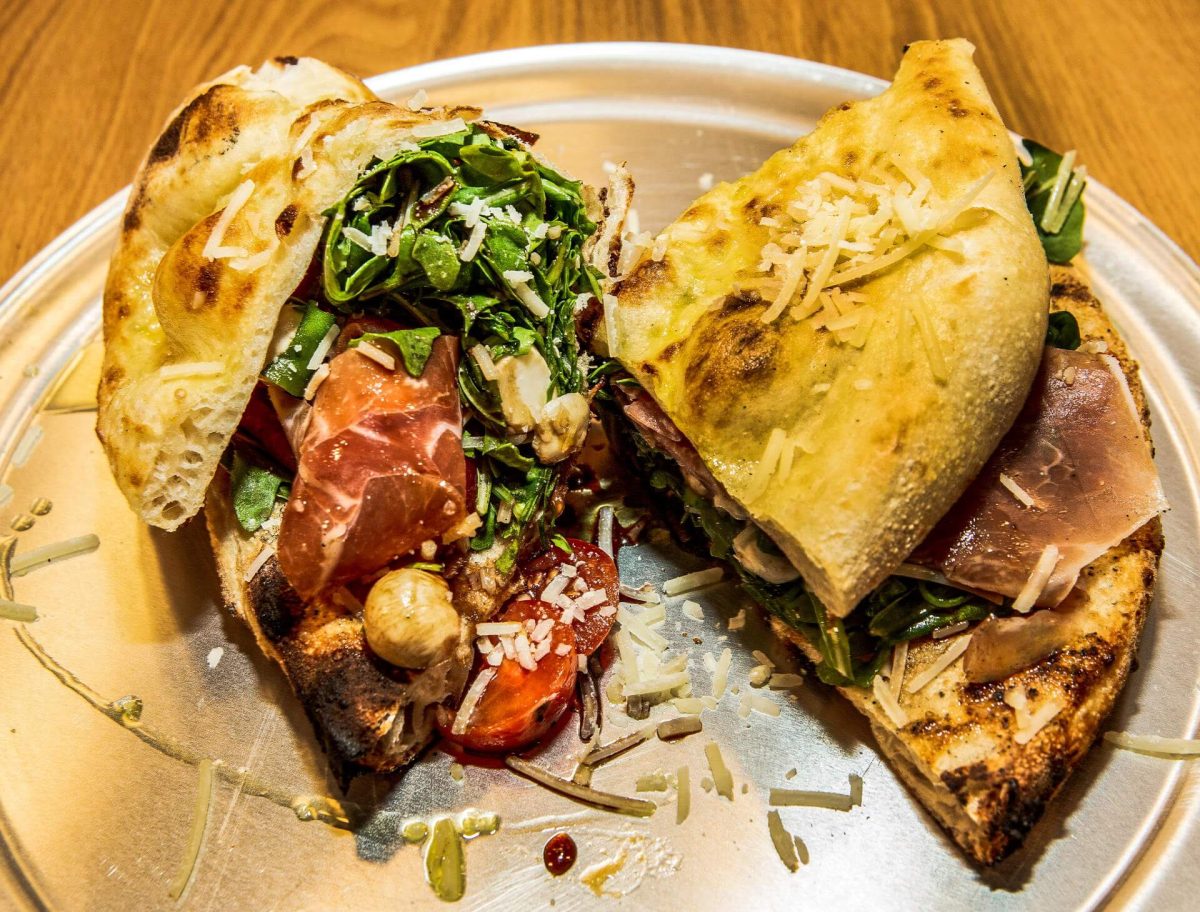
Image: Dr. Murphy’s Food Hall
Truly American food
When deciding on the mix of flavors to bring to Dr Murphy’s Food Hall, there were a few must-haves, however.
“We did find it important to have pizza,” he says. “Chicago is an interesting place for pizza – they definitely have their own style. But it’s also a very adoptive cuisine. I’ve seen Detroit pizza, New York pizza, Sicilian pizza, Napoli pizza.” The food hall settled on a vendor, originally from Iowa, specializing in American/Italian style-pizza.
“At the same time, we recognize that dumplings are always a good seller, so we have a Nepalese vendor who does Nepalese dumplings. These are a blend of South-east Asia and Chinese style dumplings, which we found very interesting,” he adds.
This mixing of cuisines from different cultures is what Nawab says makes food halls so popular.
“America is a place of all different cultures. Indian, Japanese, Italian – you name it. Those people that came here all those years ago really paved the way for the diversity that should be totally accepted in all forms of dining. America has no food of its own – it’s based upon all of these different cultures. My mother’s adaptation of Indian cooking in America is American food. And that’s why I think these food halls are so interesting to me, is that they give America a roof to take all of these flavors and blend them together in a way that is truly American.”
Creating space for community
But it’s not just about the food. Nawab wants to create a space where the local community can gather together and have shared experiences.
“Food halls need to be very experiential. I think we can achieve that, not just with the food, but we also have the space for other pop-up style events, like maybe an art gallery showing for local artists,” he explains. “We’re trying to create a community center, in a way, where we can do movie nights or a bingo night, or team-oriented outdoor events.”
Nawab and the team at Dr Murphy’s Food Hall are exploring the different ways in which they can encourage that kind of community spirit, working with local businesses and the Hyatt Place hotel, with which it shares the building.
“Obviously we can’t be together at this particular time like we used to, but everyone needs a place where they can gather that also allows for everyone to be distanced, which we can fortunately satisfy with the size of the food hall.”
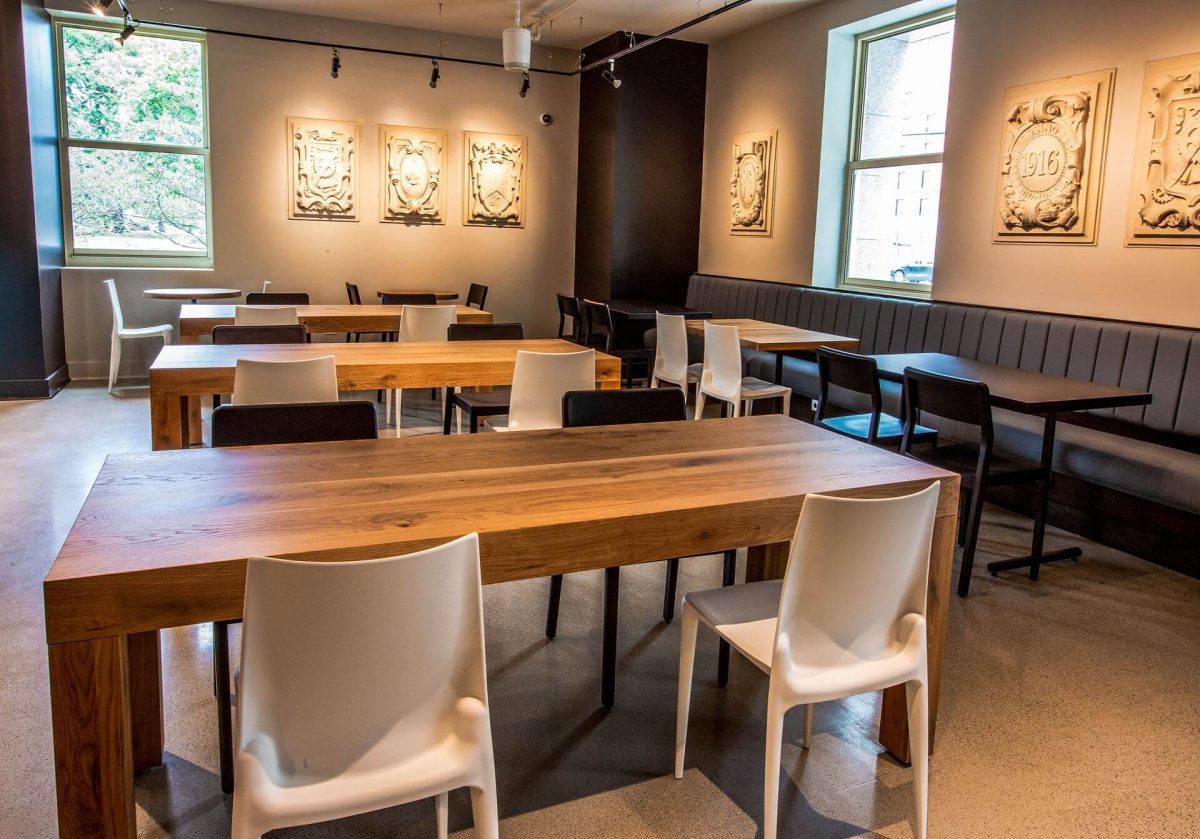
interior of the food hall | Image: Dr. Murphy’s Food Hall
Ensuring safety for vendors and customers
Creating a safe space for customers, with appropriate social distancing and safety measures, is of particular importance right now.
“A lot of restaurants have very little ability to offer a socially-distant floorplan the way a food hall can. We’re dealing with 10,500 sqft inside and about 1,500 sqft outside, so that allows us the ability to spread out in a way that a typical restaurant is not able to,” Nawab explains. And the group has learned a lot from its other venues.
“We had one food hall that was already open before the pandemic, in Omaha, Nebraska. We closed there for about two months, which gave us an opportunity to regroup and think about what we could do to make this as safe as possible when we reopened.”
Hospitality HQ worked with the local departments of health in Omaha, Chicago and New York City to create a manual on how to manage large venues through Covid, to help inform best practice.
“We figured that clear management is really key to navigating this as best we can. So now we’ve created logbooks and checklists, and we have our management team physically go through each vendor’s stall every day and make sure they’re compliant. We also have a consumer-facing checklists that demonstrate the levels of sanitation that we are meeting and we added and implemented sanitation specialists that walk through the food hall and sanitize tables after every usage.”
High-touch areas commonly understood to carry bacteria and viruses are now attended to more aggressively than they would have in the past, flexi-glass screens have been installed to separate the cashier and the customer, and an online payment system has been set up so people can order and pay ahead of time.
In a landscape where many are still cautious about eating out, safety is the new measure of success. “In the past I would have said, ‘I hope they have a great time and it was delicious’, but right now it’s really about making people feel comfortable and safe,” admits Nawab.
“Hospitality has taken a real different direction than it has in the past. Taking care of the customer meant something different before this. Now it means making them feel safe and secure.”


